
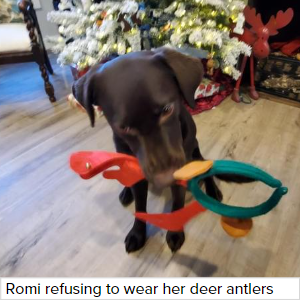
I’m resigned to the fact she receives more presents than I do. Let’s talk about my favourite dog and cat gift ideas based on things dogs and cats love. I’m leading with my top holiday tip, which may surprise some of you.
Don’t gift wrap pet presents and leave them under the tree. What? What’s the fun in that? Here’s the thing: I know you have the smartest dog and most intelligent cat in the world.
Many pets love tearing wrapping paper from their new treat bag…and your partner’s new smartwatch and your kid’s new game console and Grandma’s new scarf. Let’s not teach them a bad habit and then scold them when they try to repeat the fun. Leave stockings out of reach of pets. Consider putting their present inside a plain cardboard box or paper bag. Know that the box or bag may be their best present ever.
Many pets love tearing wrapping paper from their new treat bag…and your partner’s new smartwatch and your kid’s new game console and Grandma’s new scarf. Let’s not teach them a bad habit and then scold them when they try to repeat the fun. Leave stockings out of reach of pets. Consider putting their present inside a plain cardboard box or paper bag. Know that the box or bag may be their best present ever.
Dr. Fisher’s Top Five Vet-Approved Gift Ideas Cats
1. The Gift of Play
Adult cats can be persnickety about play, so let’s figure out what YOUR cat likes.DO: Offer feathery, furry, bouncy, mobile toys – with and without catnip – to get a sense of their preference. Cats tend to play for less than 5 minutes at a time before losing interest in a toy. If your cat seems to get bored, wait half an hour and re-introduce the object. Know that your cat’s favourite toy may be the crumpled-up shopping list that missed the wastebasket.
DON’T: Use your hands and feet to play “catch me”. We don’t want to encourage bad habits that can evolve into full-on ambush attacks later.
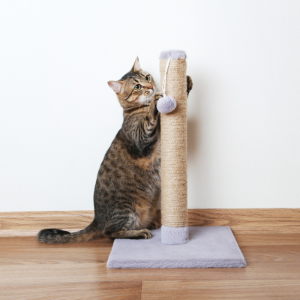 2. The Gift of Scratching
2. The Gift of Scratching
Kittens naturally paw and knead their front feet to stimulate milk letdown from their mother. Adult cats “make biscuits” for exercise, to show affection, and to scent-mark their territory (yes, you are “theirs”).DO: Offer carpet, sisal (rope), cardboard, and wooden textures on flat, vertical, and angled surfaces. Use catnip and feline synthetic pheromones to attract your cat to appropriate scratching places.
DON’T: Punish your cat for scratching your furniture, you, or other inappropriate items. Deep kneading into your lap is not meant to hurt you, and your cat does not understand how sharp their claws feel. Scolding and physical corrections can lead to anxiety-related behaviours that hurt your overall relationship.
3. The Gift of Treats
Who doesn’t love a yummy holiday treat? Cats sure do!DO: Offer cat-specific treats – commercial or homemade – that align with your cat’s special nutritional needs.
DON’T: Give food from the table containing fats, sugar, and spices that can be potentially toxic. Common foods to avoid: garlic, onions, dairy, nuts, yeast dough, grapes/raisins/currents, artificial sweeteners (xylitol), poultry skin and bones.
4. The Gift of Height
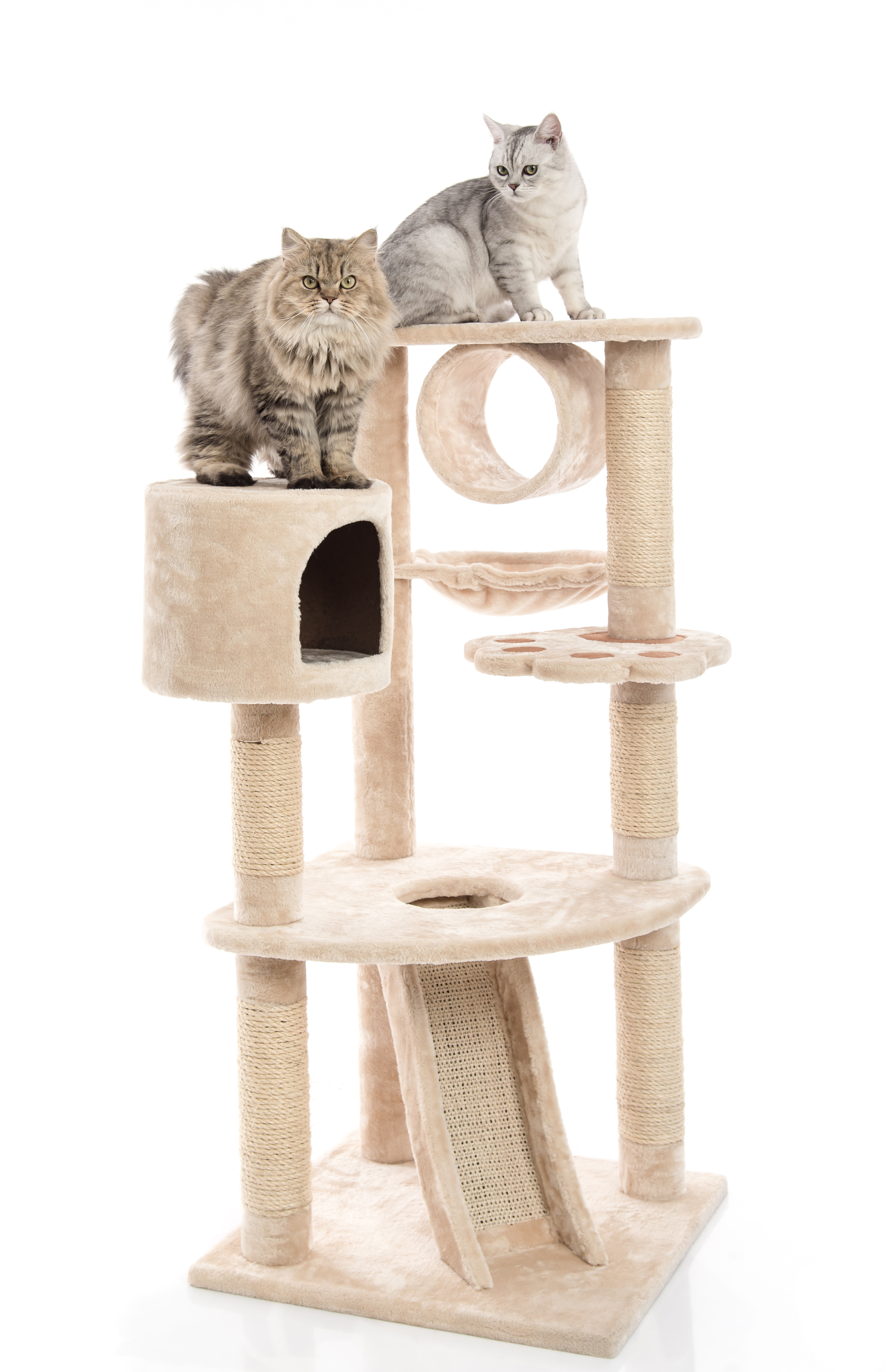.jpeg?lang=en-CA&width=322&height=500)
DO: Add shelving, window hammocks, and tall kitty condos that are structurally safe for your cat to climb.
DON’T: Bring home a kitty condo that is exactly at eye level for your dog. We want your cat to be able to rest out of reach of any pooch or toddler in the home.
5. The Gift of Hiding
Cats enjoy the power of invisibility and finding good places for them to “vanish” can be fun for their people.DO: Give a kitty tent or tunnel for their disappearing acts. A cardboard box decorated with non-toxic crayons and paint by their kids makes a fun DIY holiday craft. Remember that laying under a blanket beside you or on your lap may be their favourite quiet-time sanctuary.
DON’T: Leave the hiding space out in the open. These places are best tucked against a wall or closet space for maximum feline invisibility power.
Dr. Fisher’s Top Five Vet-Approved Gift Ideas Dogs
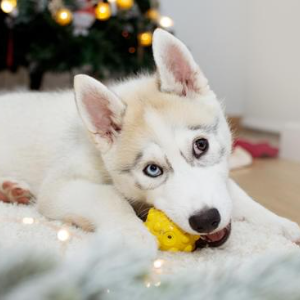 1. The Gift of Chewing
1. The Gift of Chewing
Young and old, most dogs love a good chew. Chewing is one of the most relaxing and independence-building activities we can offer our dogs.DO: Offer safe and appropriate gift chews. Ask your veterinary team for recommendations about the best brands suitable for your dog’s breed type. Look for objects that can be stuffed with xylitol-free peanut butter or broth and kibble for a longer-lasting chew.
Natural by-product chews like tracheas, ox tails, and rawhide from respected sources, as well as vegan chews, can be very satisfying and help keep teeth clean. Always supervise chewing and remove any chew that is small enough to swallow.
DON’T: Offer hard items like cooked bones, antlers, and nylon chews that may break teeth. If you bang a chew against your kneecap and it hurts, it’s too hard for your dog. If you have a dog who guards chews, avoid this activity around children and other pets.
2. The Gift of Investigation
Your dog is a natural detective and loves searching their environment for interesting smells and tastes.DO: Play hide and seek with puzzle toys, stuffed chews, and individual treats scattered around the home and yard. For an inexpensive alternative, place treats under small plastic tubs and cardboard boxes and let your dog figure out the game themselves.
DON’T: Leave your dog unsupervised while they are learning these games. Monitor your dog to avoid their chewing or swallowing of non-food objects.
3. The Gift of Exercise
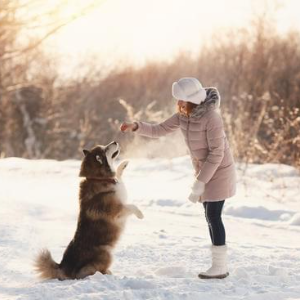
Take some time for you and your dog to get fresh air during the busy holiday season. The good-feeling endorphins will make the rest of your day better for both of you.DO: Go for a walk at quiet times in the morning or evening and enjoy your neighbourhood’s holiday lights. Take a ball into your backyard or local park to play fetch. Join a dog-walking club and socialize with other dogs and their people.
DON’T: Overestimate your dog’s health or ability to follow your direction. Dogs with physical challenges will still like to go out for short walks. If your dog’s recall is iffy, play short-distance fetch while they are tethered on a 15- to 20-foot training line. Reactive dogs may find social walking too stimulating and be less stressed when walked alone.
4. The Gift of Treats
Our dogs love food as much as we do!DO: Offer dog-specific treats – commercial or homemade – that align with your dog’s special nutritional needs.
DON’T: Give food from the table containing fats, sugar, and spices that can be potentially toxic. Common foods to avoid: garlic, onions, dairy, nuts, yeast dough, grapes/raisins/currents, artificial sweeteners (xylitol), poultry skin and bones.
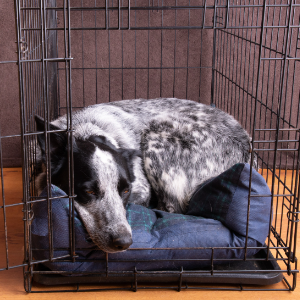 5. The Gift of Quiet
5. The Gift of Quiet
During busy times, offer a quiet space away from the holiday cheer.DO: Offer a quiet space behind a baby gate, doggy pen, or in a crate with food, water, toys, and treats.
DON’T: Push your dog into a new crate as your guests ring the doorbell. We want to give your dog lots of practice hanging out in their quiet space for weeks or months before company arrives.
Ask your veterinarian and hospital staff for tips about space/crate training. In some cases, anxiety-relieving medications can be prescribed to help decrease your dog’s stress.
For You: The Gift of Peace of Mind
Veterinarians see many pet accidents and illnesses during the holiday season. We want your pet protected, so you can say, “YES!” to recommended diagnostics and treatments when they need it most. Give yourself the gift of peace of mind with a Petsecure pet health insurance plan. The staff of Petsecure wish you and your pets a safe and happy holiday season!
Learn what’s covered by Petsecure and get a free quote today!
